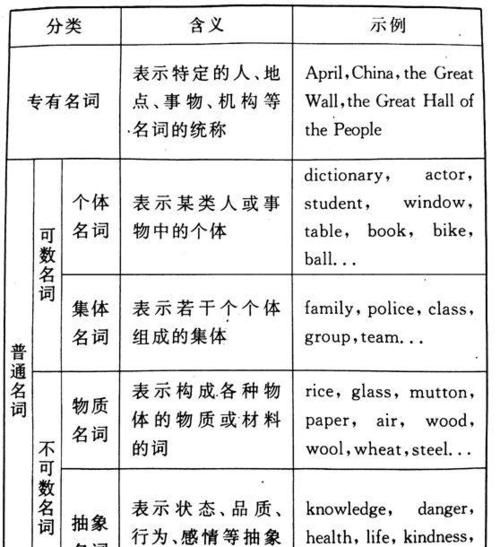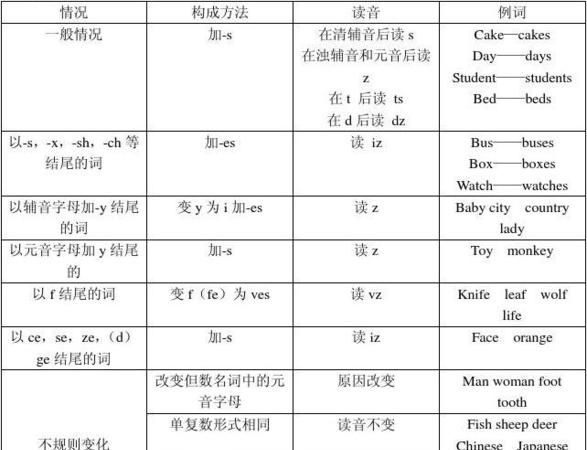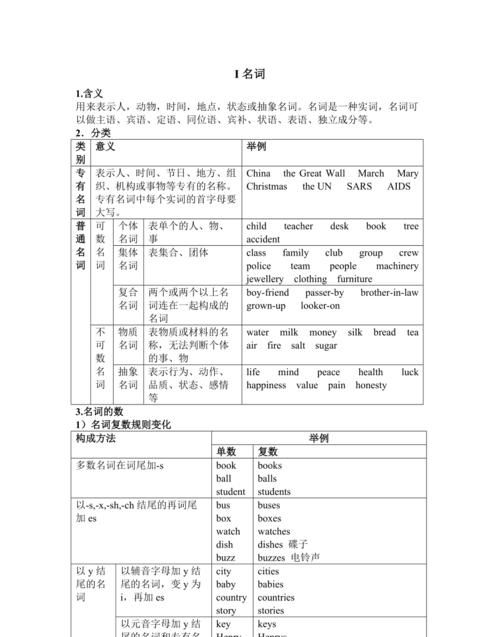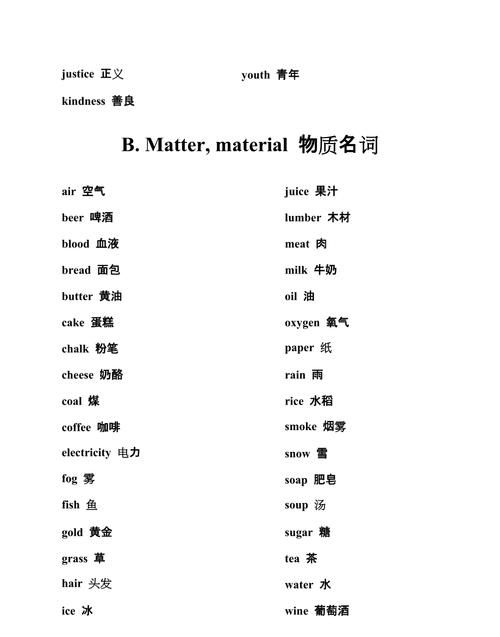本文目录
英语单词之常用名词有哪些
单词是学英语的`第一步,下面就一起来看看常用名词的英语单词有哪些吧!希望大家喜欢,更多内容请关注。
英语单词之常用名词1
1. account
2. act
3. addition
4. adjustment
5. advertisement
6. agreement
7. air
8. amount
9. amusement
10. animal
11. answer
12. apparatus
13. approval
14. argument
15. art
16. attack
17. attempt
18. attention
19. attraction
20. authority
21. back
22. balance
23. base
24. behavior
25. belief
26. birth
27. bit
28. bite
29. blood
30. blow
31. body
32. brass
33. bread
34. breath
35. brother
36. building
37. burn
38. burst
39. business
40. butter
41. canvas
42. care
43. cause
44. chalk
45. chance
46. change
47. cloth
48. coal
49. color
50. comfort
51. committee
52. company
53. comparison
54. competition
55. condition
56. connection
57. control
58. cook
59. copper
60. copy
61. cork
62. copy
63. cough
64. country
65. cover
66. crack
67. credit
68. crime
69. crush
70. cry
71. current
72. curve
73. damage
74. danger
75. daughter
76. day
77. death
78. debt
79. decision
80. degree
81. design
82. desire
83. destruction
84. detail
85. development
86. digestion
87. direction
88. discovery
89. discussion
90. disease
91. disgust
92. distance
93. distribution
94. division
95. doubt
96. drink
97. driving
98. dust
99. earth
100. edge
101. education
102. effect
103. end
104. error
105. event
106. example
107. exchange
108. existence
109. expansion
110. experience
111. expert
112. fact
113. fall
114. family
115. father
116. fear
117. feeling
118. fiction
119. field
120. fight
121. fire
122. flame
123. flight
124. flower
125. fold
126. food
127. force
128. form
129. friend
130. front
131. fruit
132. glass
133. gold
134. government
135. grain
136. grass
137. grip
138. group
139. growth
140. guide
141. harbor
142. harmony
143. hate
144. hearing
145. heat
146. help
147. history
148. hole
149. hope
150. hour
151. humor
152. ice
153. idea
154. impulse
155. increase
156. industry
157. ink
158. insect
159. instrument
160. insurance
161. interest
162. invention
163. iron
164. jelly
165. join
166. journey
167. judge
168. jump
169. kick
170. kiss
171. knowledge
172. land
173. language
174. laugh
175. low
176. lead
177. learning
178. leather
179. letter
180. level
181. lift
182. light
183. limit
184. linen
185. liquid
186. list
187. look
188. loss
189. love
190. machine
191. man
192. manager
193. mark
194. market
195. mass
196. meal
197. measure
198. meat
199. meeting
200. memory
英语单词之常用名词2
1、clothes:衣服
2、garments:外衣
3、wardrobe:衣柜
4、double-breasted suit:双排扣外衣
5、clothing:(总称)衣服
6、ready-made clothes:成衣
7、suit:套装
8、ready- to-wear:现成服装
9、dress:女装
10、men’s wear::男装
11、women’s wear:女装
12、everyday clothes:便服
13、three-piece suit:三件套
14、underwear:内衣
15、uniform:制服
16、overalls:(美)工装裤
17、cuff:袖口
18、formal dress:礼服
19、buttonhole:纽扣孔
20、tailcoat, 燕尾服,
21、morning coat:大礼服
22、shirt:衬衫
23、blouse:女衬衫
24、evening dress:晚礼服
25、zeal:热情
英语单词之常用名词3
1.abolishment 废除
2、absurdity 荒唐;谬论
3、abuse 滥用
4、achievement 成绩
5、acqaintance 熟人
6、adaptation 改写;适应
7、admiration 崇拜
8、adventurer/explorer 探险者
9、adversee impact 负面影响
10、adversity 逆境
11、affection 友情/感情
12、alienation 疏远
13、ambition 志向
14、amusement 娱乐
15、anecdote 轶事
16、apathy 冷漠无情
17、approach 鼓掌
18、architecture 建筑
19、art 艺术
20、assault 攻击
21、assessment 评估
22、association 联想;联系
23、athlete 运动员
24、availability 可得到的东西
25、barrier 妨碍
26、behavior 行为
27、beneficiacry 受益人
28、budget 预算
29、burden 负担
30、campaign 运动
31、candidate 候选人
32、capacity 能力
33、celebrity 名人
34、character 性格
35、charecteristic 特征
36、charm 魅力
37、clerk 职员
38、cohesion 凝聚力
39、colleague 同事
40、collectivism 集体主义
41、comfort 舒适
42、commercial 商业广告
43、commercialization 商业化
44、commodity 商品
45、companion/partner 同伴
46、conformity 一致
47、conssensus 同意
48、consultation 咨询
49、consumption 消费
50、content 内容
51、contentment 满意;满足
52、contribution 贡献
53、correlation 相关性
54、costume 服装
55、creativity 创造性
56、criteria 条件
57、cruelty 残忍
58、customer 顾客
59、cybercrime 网络犯罪
60、depression 沮丧;低沉
61、deprivation 剥夺
62、descendant 后代
63、deterioration 恶化
64、detour 绕道
65、developed countries 发达国家
66、developing countries 发展中国家
67、digestion 消化吸收
68、dignity 尊严
69、discipline 纪律
70、discomfort 不舒服
71、discontent 不满足
72、discrimination 歧视;区别
73、disgust 反感
74、disorder 无序状态
75、disorientation 迷失方向感
76、disposition 性格
77、distraction 干扰
78、diversity 多样化;多样性
79、domain 领域
80、duplication 重复(建设)
81、duration
82、economy 耐用
83、employee 雇员
84、employer 雇主
85、endeavor 努力做
86、enjoyment 享受
87、enthusiasm 热情;狂热
88、equality 平等
89、evaluation 评价
90、expection 例外
91、exhibition 展览
92、exploration 探险
93、export 出口
94、favor 喜好
95、feature 特点
96、fidelity 忠实
97、flexibility 灵活性
98、forefather/ancestors 祖先
99、freedom 自由
100、frustration 挫折
101、gallery 美术馆
102、garment 服装
103、goodwill 善意
104、grace 雅致
105、graduate 毕业生
106、guardian 监护人
107、halt 停止;终止
108、hardship 艰难险阻
109、heritage 遗产
110、horizon 地平线
111、hostility 敌对
112、humanity 人性
113、idol 偶像
114、immunity 免疫力
115、import 进口
116、indication 迹象
117、indictment 控告
118、indifference 不关心
119、individuality 个性化
120、industry 工业;行业
121、inequality 不平等
122、infrastructure 基础设施
123、ingenuity 独创性
124、initiative 主动性
125、instruction 教导
126、instructor 教师
127、integrity 诚实
128、intellectual 知识分子
129、intelligence 智能
130、interaction 交际
131、interference 干涉
132、interpretation 解释
133、intolerance 不宽容
134、intrusiveness 干涉
135、involvement 参与
136、jealousy 妒忌
137、jogging 慢跑
138、joint effort 共同努力
139、journalist/correspondent 记者
140、joy/delight 欢乐
141、lack 缺乏
142、landmark 标志性建筑;里程碑
143、license 执照
144、life expectancy/life span 寿命
145、literacy 读写能力
146、manufacturer 制造商
147、match 匹配
148、measure 测量;评估
149、millennium 千年
150、minority 少数人
151、miscondust 行为不端
152、morality 道德
153、motion
154、muscle 肌肉
155、myoplia 近视
156、nationality 民族;国籍
157、norm 准则
158、notoin 观念;想法
159、obligation 义务
160、obsacle 障碍物
161、occupation 职业
162、opponent 对手
163、originality 独创性
164、outcome 产物
165、outlook 观点;景色
166、participation 参与
167、pastime 消遣
168、peer 同龄人
169、penalty 刑罚;处罚
170、perseverance 坚定不移
171、personality 性格
172、perspective 看法
173、popularity 普及;流行
174、popularization 普及
175、practice 做法
176、precaution 防范
177、prerogative 特权
178、principle 原则
179、profession/occupation 职业
180、proficiency 精通
181、promotion 提升
182、prospect 前景
183、prosperity 繁荣
184、protocol 协议
185、prudence 慎重
186、public opinion 舆论
187、punishment 惩罚
188、purity 纯洁性
189、rebellion 反叛
190、recovery 恢复
191、regression 衰退
192、regulator 监控者
193、reliability 可心度
194、remedy/therapy 疗法
195、remote education 远程教育
196、revelation 揭示/表现
197、revenue 总收入
198、reward 奖赏;报酬
199、rumor/gossip 谣言;传闻
200、satisfaction 满足
201、self-discipline 自律
202、self-respect/self-esteem 自尊心
203、shortcoming 缺点
204、side-effect 副作用
205、signal 信号
206、skyscraper 摩天大楼
207、sociologist 社会学家
208、soul 灵魂
209、specialty 专业
210、spelling 拼写
211、status 地位
212、stereotype 成见
213、straightforwardness 直率
214、strain 压力;过度劳累
215、strategy 策略
216、strength 实力
217、stress 压力
218、substance 物质
219、supplement 补充
220、sympathy 同情
221、symptom 症状
222、talent 人才
223、teenager 青少年
224、temper 性情;烦躁
225、tempatation 诱惑
226、threshold 开端
227、tip 提示;技巧
228、tolerance 宽容
229、tragedy 悲剧
230、trait 特点
231、trap 陷阱
232、triviality 琐事
233、troblemaker 捣乱者
234、tutor 导师
235、uniformity 一致
236、vanity 虚荣心
237、varety 多样性;种类
238、verdict 判决
239、vexation 烦恼
240、victim 受害者
241、vitality/vigor/energy/vim 活力;精力
242、void 空虚
243、warmth 温暖
244、weakness 缺点
245、withdrawal 退出;撤退

英语中的名词有哪些
名词有很多哦以下是名词的讲解哦认真看下嘛是表示人、事物、抽象概念等名称的词。根据其词汇意义,名词可分为专有名词和普通名词。1. 专有名词:指表示人、地方、机构、组织等的专有名称。具体说来,它包括人名、地名、月份、星期、节日、书名、电影名以及某些抽象名词等。如:Jim 吉姆 China 中国 Mr. Smith 史密斯先生July 七月 Friday 星期五 the Yellow River 黄河Christmas 圣诞节 English 英语 A Tale of Two Cities 《双城记》注:专有名词的首字母通常要大写。若是专名名词词组,则其中每个单词的首字母要大写;若是缩略词,则通常每个字母都大写;称呼家人的 mum, dad, father, mother 等有时也可小写。2. 普通名词:指表示一类人或东西或抽象概念的名词。具体地说,它可分为个体名词、集合名词、物质名词和抽象名词。其中个体名词表示某类人或东西中的个体,如girl(女孩)等;集体名词表示若干个个体组成的集合体,如 audience(观众,听众)等;物质名词表示无法分为个体的实物,如water(水)等;抽象名词表示动作、状态、品质、感情等抽象概念,如work(工作),happiness(幸福)等。 编辑本段名词的数的问题1. 名词复数的规则变化(1) 一般情况加词尾 -s,如 book / books, desk / desks等。(2) 以 s, x, z, sh, ch 等结尾的名词,通常加词尾 -es:bus / buses, box / boxes, dish / dishes等。(3) 以y 结尾的名词,其复数构成要分两种情况:以“辅音字母+y”结尾的名词,将 y 改为 ies;以“元音字母+y”结尾的名词,直接加词尾-s:city / cities, toy / toys, holiday / holidays 等。2. 复数规则变化的几点说明(1) 以 ch 结尾的名词变复数时加词尾-es,指的是 ch 读音为[tF]时;若ch的读音为[k],则其复数应加词尾-s,如 stomach[tstQmEk]是 stomachs,而不是 stomaches。(2) 以y结尾的专有名词,直接加词尾s变复数。如:There are two Marys in our class. 我们班在两个玛丽。(3) 以 o 结尾的名词,有些加词尾 -s,有些加-es,但在中学英语范围内,以o结尾的名词变复数加词尾-es 的主要有以下4个:tomato(西红柿),potato(土豆),hero(英雄),Negro(黑人)。注:有些以o 结尾的名词在变复数时加-s或-es均可,如zero / zero(e)s(零)等。(4) 以 f 或 fe 结尾的名词,也有两种可能:即有些直接加词尾-s,有些则把 f / fe 改为 ves:roof / roofs(屋顶),knife / knives(小刀)等。但在中学英语范围内,要改 f / fe 为 ves 的只有以下10个词(它们都是日常生活中的常用词):wife(妻子),life(生命),knife(小刀),leaf(树叶),thief(贼),half(一半),self(自己),shelf(架子),loaf(面包),wolf(狼)。注:中学英语中的handkerchief(手帕)在变复数时有两种形式:handkerchiefs / handkerchieves,但在现代英语中,以用 handkerchiefs 为多见。3. 单数与复数同形的名词。这类名词不多,主要的有:sheep 绵羊 fish 鱼 deer 鹿Chinese 中国人 Japanese 日本人 Portuguese 葡萄牙人Swiss 瑞士人 aircraft 飞行器 means 方法series 系列 head (牛等的)头数 works 工厂注:(1) fish 有时也用 fishes 这样的复数形式,尤其是表示种类时;head 若不是表示牲口的“头数”,而是表示“人的头”或“人数”,则要用 heads 这样的复数形式。(2) 由汉语拼音形式出现的名词,其复数与单数同形,如 fifty yuan(5元),thirty fen(3角),five li(5里),ten mu(10亩)等。4. 名词复数的不规则变化。有的名词单数变复数时,没有一定的规则,需特别记忆:man / men 男人 woman / women 女人child / children 小孩 tooth / teeth 牙齿foot / feet 脚 goose / geese 鹅mouse / mice 老鼠 ox / oxen 公牛注:(1) 一些以 man, woman 结尾的合成词,在构成复数时与 man, woman 的变化形式相同,如:policeman / policemen(警察), Englishman / Englishmen (英国人),等等。但是 human(人),German(德国人),Walkman(随身听)不是合成词,它们的复数要按一般规则变化,即为 humans, Germans, Walkmans,而不是 humen, Germen, Walkmen。又如Bowman是姓,其复数是Bowmans,不是 Bowmen。(2) foot表示“英尺”时,其复数可以有两种形式 feet / foot,如:He is about six feet [foot] tall. 他大约6英尺高。5. 复合名词变复数的方法。复合名词变复数通常是将其主要名词变为复数:passer-by / passers-by 过路人 looker-on / lookers-on 旁观者若没有主要名词,则通常在最后一个词尾加s:know-all / know-alls 万事通对于由man / woman用于另一名词前构成的合成名词,则需将两者变为复数:man nurse / nurse doctors 男护士woman lawyer / women lawyers 女律师 编辑本段名词的可数性问题名词根据其可数性,可分为可数名词和不可数名词。一般说来,个体名词和大部分集合名词是可数的;而专有名词、物质名词、抽象名词以及小部分集合名词则通常是不可数的。但是这种区分只是大致的,原则性的,并不是绝对的。比如,在通常情况下专有名词具有“独一无二”性,因此它通常没有复数形式,即不可数。但是,专有名词的独一无二性有时是相对的,随着范围的扩大,这种独一无二性便会受到破坏。如在一个星期(week)内,只有一个星期六(Saturday), 一个星期日(Sunday)等,但是在一个月中甚至一年中,便有多个星期六,多个星期日了。又如,在一个小范围内,可能只有一个 Henry,但在一个较大的范围内则可能有多个 Henry, 因此我们有时会见到类似以下这样的句子:We have spent many happy Sundays there. 我们在那儿度过了许多个愉快的星期日。There are five Henrys in our school. 我们学校有五个亨利。另外,物质名词在通常情况下不能分为个体,所以它通常是不可数的。但是,在某些特殊情况下(如表示种类等),有些物质名词也可以连用不定冠词或用复数形式。如:Will you have tea or coffee? 你喝茶还是喝咖啡?Two coffees, please! 请来两杯咖啡!再如,抽象名词是表示事物性质、行为、状态、感情等抽象概念的,因此它通常是不可数的。但是,有时抽象名词也可转化为具体名词,表示具有某种性质的人、事物或行为(可数)。如:She did this out of kindness. 她这样做是出于好心。(指抽象意义)He has done me many kindnesses. 他对我很关心。(指好意的行为) 编辑本段名词的格的问题1. 名词格的种类:英语名词有三个格,即主格、宾格和所有格。名词的主格和宾格形式相同,所以它们又统称作通格。当名词用作主语、宾语、表语时,用通格。英语名词的所有格表示所属关系,它分-’s 所有格和 of 所有格两种形式。2. –’s所有格的构成方法:单数名词或不带复数词尾-s的复数名词尾均加词加-s 构成所有格,但若复数名词已带有词尾-s,则只加省字撇(’)构成所有格。如:We found the man’s wallet in a women’s room. 我们在女厕所找到了这个人的钱包。The test is beyond the students’ abilities. 这测试超过了学生的能力。注:(1) 对于带词尾-s的单数名词,通常仍加-’s,而对于带词尾-s的人名,可加-’s 或只加省字撇(’):I’m glad at the boss’s promise to increase the workers’ pay. 我很高兴老板答应提高工人们的工资。(2) 如果两个名词并列,并且分别带有 -’s,则表示“分别有”;若只带一个 –’s,则表示“两者共有”。如:This is Tom and Jim’s room, and these are Jack’s and Mary’s rooms. 这间汤姆和吉姆的房间(两人共用),这两间是杰克和玛丽(各自)的房间。3. -’s所有格的用法特点:-’s 所有格主要用于有生命的东西,但有时也可用于无生命的东西,如用于表时间的名词后、用于表国家、城市的名词后、用于组织机构后、用于某些集合名词、用于度量衡及价值名词后等。如:What are today’s assignments? 今天的作业是什么?She’s had several months’ experience. 她已有了几个月的经验。Hainan is China’s second largest island. 海南是中国第二大岛。Let’s wait in the station’s waiting-room. 我们车站候车室等吧。注:名词所有格并不一定表示所有关系,有时可能表示其他意义,如表示类别、动作执行者或承受者等。如:This is a children’s hospital. 这是一家儿童医院。(表类别)We were all waiting for the famous popular singer’s arrival. 我们都在等那位著名流行歌曲歌手的到来。(表动作执行者)They had no money to pay for their son’s education. 他们没有钱支付儿子的教育费用。(表动作承受者) 编辑本段关于名词作定语名词在句子中可用作主语、表语、宾语补足语、定语、同位语、呼语等,其中最需引起注意的是名词作定语,因为它不仅容易用错,而且也是英语高考的一个重要考点。关于此问题同学们应注意以下几点。如:1. 通常用单数:即在通常情况,名词作定语要用单数形式。如:chemistry lesson 化学课 flower garden花园school gate 校门 room number房间号码welcome party欢迎会 letter box信箱book report读书报告 shoe store鞋店paper flower纸花注:“数词+名词”作定语时,其中的名词要用单数形式。如:a five-year plan 五年计划 an 18-year-old girl 18岁的女孩2. 用复数作定语的情形:在某些特殊情况下也可用复数名词作定语,这主要见于某些用作定语的名词只有复数形式没有单数形式,或虽有单数形式但用于特定含义时习惯上要用复数形式。如:goods train 货车 arms depot军火库customs papers 海关文件 clothes brush 衣刷an arts degree文科学位 savings bank储蓄银行另外,在某些特定表达中,用作定语的名词也通常用复数。如:careers guide 就业指导 (比较:career woman 职业女性)examinations board考试委员会 (比较:examination paper 试卷)the foreign languages department 外语系 (比较:language lab 语言实验室)

英语中常用复数的名词有哪些
时间名词morning noon afternoon
月份 January February
星期Monday Tuesday Wednesday Thursday Friday Saturday Sunday
季节Spring Summer Autumn Winter
表示将来tomorrow one day the day after tomorrow
表示过去yesterday the day before yesterday
2.家庭成员名词father (dad daddy) mother(mom mummy)son daughter
3.学习用品名词book textbook notebook
4.生活用品名词desk (table) chair (armchair) watch clock fan
5.食品rice noodles bread cake egg dessert chicken
蔬菜carrot tomato potato broccoli radish onion pumpkin
水果apple orange pear peach banana watermelon hamimelon
饮料cold-drink wine water tea beer soap cold-drink juice coffee mush
6.服装clothes hat (cap) shirt skirt shorts shoes socks gloves
7.颜色black white blue grey green yellow red pink
8.职业work job teacher actor actress student singer
9.学科subject Chinese English math
10.球类运动ball soccer sport baseball football
11.乐器trumpet violin piano guitar drum
12.工作单位school club city country grade
13.节日Festival birthday The Spring-festival The Earth Day
14.身体部位hair eye nose mouth teeth ear face head
15.三餐breakfast lunch supper dinner meal snack
16.文体活动song pop song disco opera swimming diving skating skiing
17.教学术语test quiz exam final-term (mid-term)
18交通工具bus train plane bike(bicycle) motorbike boat
19.自然现象wind (windy) cloud (cloudy) snow (snowy) rain (rainy)
20.植物plant flower weed tree forest
21.动物snake spider bear dolphin whale parrot
22..国家名称China America Canada Japan
23.语言Chinese English Russian French Japanese
24.容器bag box pocket cup mug glasses bowl
25.声音voice noise call laugh cry
26.表示玩具的名词kite gun ball ship train toy mini-bus
27.表示长度,尺寸,时间,货币等“单位”名词(数量单位)
meter kilometer kilogram size time second
28.表示方位的名词front back left top bottom middle
29.抽象名词—属于不可数名词homework politics work laugh
30.表示“人”的名词 (1)家庭成员(family member)
father mother Mum Papa grandfather grandmother
(2)职业或职务类
(3)性别man woman boy girl people friend enemy female male
(4)外国人的名字
Jack Joan John Kate Mike Betty
(5)其他comrade owner learner monitor classmate desk-mate part example scientist fool winner

三年级英语单词名词分类
1.Abstract Nouns 抽象名词
抽象名词是指代概念、观点、情感等的词语。下面是一些常见的抽象名词的列表:
success 成功
depression 沮丧
love 爱
hate 反感
anger 愤怒
power 力量
importance 重要性
tolerance 容忍
2.Collective Nouns 集合名词
集合名词指代的是一组不同类型的事物。集合名词最常用于表示一群动物。
herd 兽群
litter 一窝(幼崽)
pack 一群
swarm 蜂群
hive 热闹的人群
集合名词通常也可以用来指代体系和体系下团体的名称,例如学院、商业和政府组织。
department 部门
firm 公司
party 政党
staff 员工
team 团队
3.Common Nouns 普通名词
普通名词指代的是常见事物的种类,而不是某个具体事物的名称。
注:普通名词用于指代名称时就成了专有名词,这时应该大写。下面是一些常见的用于事物名称的普通名词。
university 大学
college 学院
school 学校
institute 学会
department 部门
state 州
4.Concrete Nouns
具体名词
具体名词时代的是你可以触摸、品尝、感觉、看到等等的事物。
Countable Concrete Nouns 可数的具体名词
orange 橙子
desk 书桌
book 书
car 车
house 房子
Uncountable Concrete Nouns 不可数的具体名词
rice 米饭
water 水
pasta 意大利面
whiskey 威士忌
与具体名词相对立的就是抽象名词,它们指代的不是可以触碰到的事物,而是我们的想法、观点和感情。
5.Pronouns代词
代词是指代人或物的词。代词的数取决于它们使用的方式。下面是主格代词:
I 我
you 你
he 他
she 她
it 它
we 我们
you 你们
they 他们
6.Proper Nouns专有名词
专有名词指代的是人、事物、机构、国家等的名称。专有名词经常大写。下面是一些常见的专有名词:
Canada 加拿大
University of California 加利福利亚大学
Tom 汤姆
Alice 爱丽丝
7.Uncountable Nouns / Mass Nouns / Non-Count Nouns 不可数名词/物质名词/不可数名词
不可数名词既可以是具体名词,也可以是抽象名词。它们常以单数形式出现,因为是不可数的。一般来说,不可数名词前面不用加上定冠词或不定冠词。
rice 米饭
love 爱
time 时间
weather 天气
furniture 家具.
以上就是关于英语单词中的名词分类的分享,希望对大家有所帮助,想要了解更多相关内容,欢迎大家及时关注本平台!

以上就是关于常用的名词英语 ,英语单词之常用名词有哪些的全部内容,以及常用的名词英语 的相关内容,希望能够帮到您。

